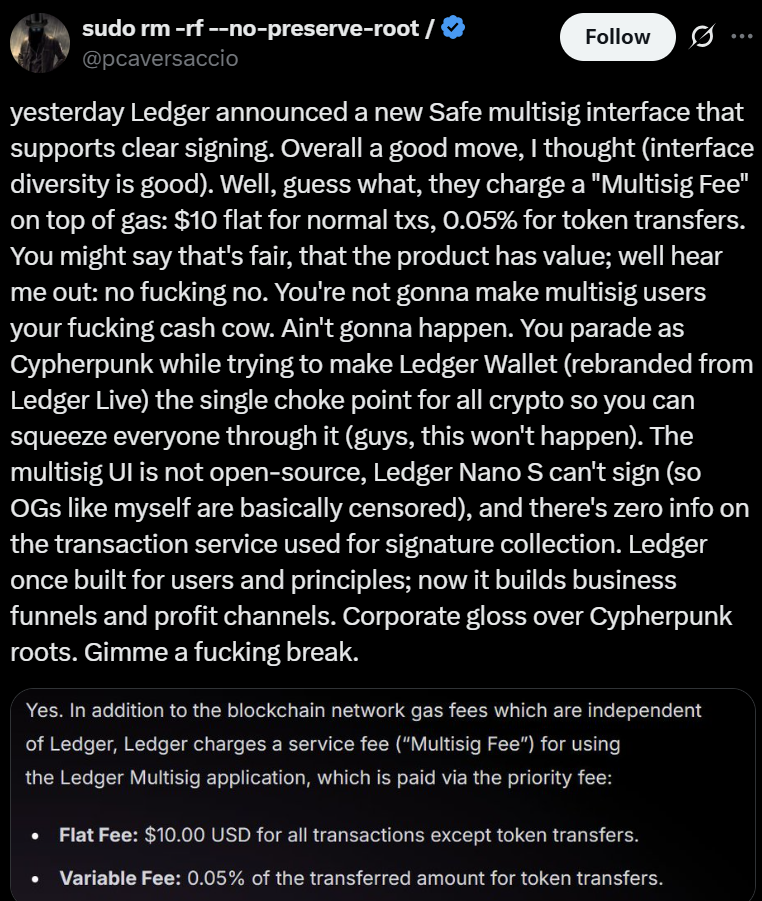
Ledger, a prominent provider of hardware wallets, has recently introduced a multisig application that has garnered attention for both its technical enhancements and the introduction of new fees, which some users have condemned as exploitative.
New Fee Structure
The multisig app will implement a standard fee of $10 for all transactions, with the exception of token transfers, which will incur a 0.05% variable fee, in addition to the usual blockchain network gas fees that are independent of Ledger.
Ethereum developer and X user pcaversaccio criticized this move:
“You parade as Cypherpunk while trying to make Ledger Wallet (rebranded from Ledger Live) the single choke point for all crypto so you can squeeze everyone through it (guys, this won’t happen).”
Translation: You present yourself as a Cypherpunk, but you’re setting up Ledger Wallet (previously Ledger Live) as the sole gatekeeper for all crypto, intending to extract from everyone. That won’t succeed.
Some users also highlighted what appears to be a contradiction between Ledger’s emphasis on transparent signing for secure transactions, as stated by CTO Charles Guillemet, and the introduction of ongoing fees for those very features. Discrepancies between Guillemet’s remarks and the documentation from Ledger prompted questions about whether the multisig service is indeed free or charged, which Guillemet later clarified as an oversight in previous communications.
 Image
Source: pcaversaccio on X
Image
Source: pcaversaccio on X
Ledger’s Market Presence
Ledger is widely recognized as the leading hardware wallet provider in the cryptocurrency sector, claiming over 7.5 million devices sold since its inception, securing approximately 20% of the global cryptocurrency market by value. The company’s hardware wallets enable users to maintain ownership of their digital assets, aligning with the core principles of cryptocurrency that emphasize control without reliance on centralized mechanisms.
While these wallets are known for their resilience against common online threats — none of Ledger’s devices have reportedly been compromised externally — security analysts from Kaspersky indicate that users must remain vigilant against phishing tactics and social engineering attacks that can lead to unauthorized access to their private keys or recovery phrases.
For related reading, view this article regarding Ledger and Trezor.


